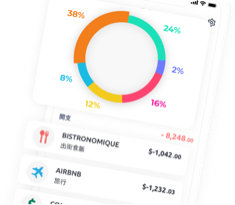Starting a company is the first step in entrepreneurship. While registering a company in Hong Kong has been simplified significantly, first-time entrepreneurs might still find the procedures daunting. Even if you outsource the registration process to accounting and secretarial firms, founders must be familiar with the process and crucial details to ensure a smooth start to their business journey.
Limited Company vs. Unlimited Company: What’s the Difference?
When considering starting a small or medium-sized enterprise, the two most commonly known types of companies are limited and unlimited companies. They differ in terms of their legal status, debt, and tax liabilities. The main differences include:
Limited Company in Hong Kong
- A limited company is a legal entity with its own legal status. Shareholders can enter into contracts or borrow money in the company’s name. Limited companies must appoint a registered accountant annually for auditing and submit an annual return for tax assessments.
- As limited companies are separate from their shareholders, in most cases, shareholders aren’t personally liable for the company’s debts unless they’ve signed specific collateral agreements.
- Limited companies can further be classified into:
- Company Limited by Shares: Most companies in Hong Kong are registered under this type. The legal responsibility of company members is determined by their articles of association and is limited to the unpaid amount on the shares they hold.
- Company Limited by Guarantee: This type doesn’t have share capital. The legal liability of its members is limited to the amount they have pledged to contribute to the company’s assets upon liquidation. Typically, non-profit organizations (NGOs) register as companies limited by guarantee.
Unlimited Company in Hong Kong
- Unlimited companies operate under individual or partnership names. In simple terms, once a business registration is obtained, it’s equivalent to owning an unlimited company. Since they don’t have separate legal status, shareholders have unlimited liability. If the company incurs debts, shareholders might have to use their assets to settle them.
- There are advantages to operating an unlimited company. For instance, there’s no need to submit audited financial reports annually. Instead, you only need to keep accounts and offer tax returns on time, saving at least HK$10,000 in auditing expenses annually.
- Tax rates for unlimited companies are also generally lower. Currently, the profits tax rate for the first HK$2 million for limited companies is 8.25%, and 16.5% for profits beyond that. For unlimited companies, the tax rates are 7.5% and 15%, respectively.
Procedure to Establish a Limited Company
Step 1: Decide on a Company Name
- You can use English or Traditional Chinese for the company’s registered name. Simplified Chinese or mixed language (Chinese-English) names aren’t accepted. Ensure that your chosen name doesn’t clash with existing entities. You can check for name availability through the Companies Registry’s online search center, mobile service, or in person at the public search center located at Queensway Government Offices.
Step 2: Submit the Application and Pay the Fees
- Submit your application electronically (through the “e-Registry” website or the “CR eFiling” mobile app) or in physical form to the Companies Registry. Required documents and fees include:
- Incorporation Form (NNC1 or NNC1G form)
- Articles of Association
- Notification to the Business Registration Office (IRBR1 form)
- Business Registration Fee: HK$2,150 for one year; HK$5,650 for three years
- Company Registration Fee: Currently HK$1,720
Step 3: Receive Company Registration Certificate
- You will receive the Company Registration Certificate and Business Registration Certificate upon successful application. Depending on your submission method, they can be issued electronically or in a physical format, both having the same legal validity.
- Electronic Certificate: Notification will be sent via email, allowing the applicant to download the certificate.
- Physical Certificate: Notification is sent via fax. When collecting the certificate, you must present the “Certificate Collection Notice” and the ID proof/company stamp mentioned in the notice.
After successfully establishing a limited company, you can use your business registration and company registration certificates to open a company bank account to manage daily operations. Additionally, if hiring employees, ensure you purchase worker’s insurance and set up Mandatory Provident Fund (MPF) accounts for them.


















